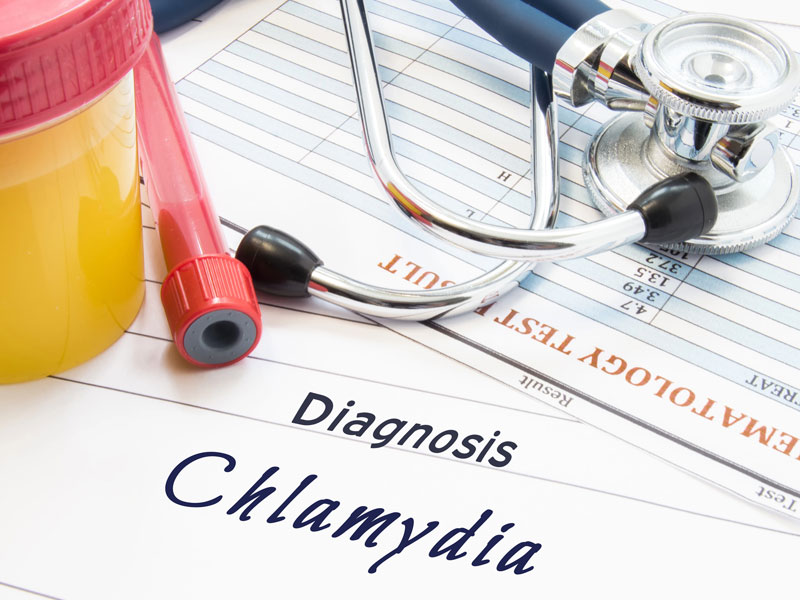
We get asked many times: “What STD can cause infertility?” No one wants any kind of STD, of course, but the issue of possible infertility sparks an immediate worry in both men and women.
The truth is, sexually transmitted diseases (STDs) are not only bad for your immediate health, but can also have lasting consequences for your fertility. So it makes sense to be aware of possible infertility due to STD. You can then safeguard your reproductive future, yes, but also make informed healthcare choices.
We’ll list some common STDs linked to infertility, but first let’s quickly look at…
How an STD Can Cause Infertility
STDs are infections transmitted mainly through sexual activity and are caused by bacteria, viruses, or parasites.
Because some STDs don’t always show clear symptoms, an infection might go unnoticed and untreated. It can cause serious complications, from chronic inflammation and scarring to damage to your reproductive organs.
Early detection and timely treatment is critical. Which is why regular testing for you and your partner is best practice to prevent STDs.
Let’s look now at the main culprits that may cause infertility.
Common STDs Linked to Infertility
Several sexually transmitted diseases have been identified as particularly harmful to your reproductive health. Knowing which STDs can cause infertility will help you preserve your reproductive well-being.
1. Chlamydia
Chlamydia is the most frequently reported STD in the United States. Caused by the bacterium chlamydia trachomatis, it often has mild or no symptoms.
However, if undiagnosed and untreated, chlamydia can cause pelvic inflammatory disease (PID) in women. This damages your fallopian tubes, uterus, and surrounding tissues. This kind of damage significantly increases your risk of infertility.
In men, untreated chlamydia can infect their testicles and epididymis – leading to a painful inflammation that can impair sperm production and reduce fertility.
Chlamydia is the most common example of how an STD can cause infertility.
2. Gonorrhea
Gonorrhea is caused by neisseria gonorrhoeae, and like chlamydia, frequently has no apparent symptoms initially. When left untreated, gonorrhea, too, can lead to PID in women and epididymitis in men.
3. Human Papillomavirus (HPV)
HPV is a common viral infection typically associated with genital warts and cervical cancer.
However, although HPV itself doesn’t directly cause infertility, its associated complications can: HPV-related cervical lesions or cancers require treatment methods that might adversely impact your fertility.
How? Surgical removal procedures can affect your cervix and uterus, which influences your fertility and your ability to carry a pregnancy to term. You can ask your doctor about HPV vaccination.
4. Mycoplasma Genitalium
This lesser-known bacterium is increasingly recognized as a significant STD that affects fertility.
Infections caused by mycoplasma genitalium have been associated with pelvic inflammatory disease and cervicitis in women – both of which can lead to scarring and infertility. Men are also vulnerable, with the infection linked to urethritis and epididymitis.
5. Syphilis
While less common today, syphilis – caused by treponema pallidum – can lead to severe complications if untreated.
In its advanced stages, syphilis can damage reproductive tissues in both men and women, contributing to both infertility and pregnancy complications. Think: miscarriage, preterm birth, or severe congenital disabilities.
Blood Test for STD and Infertility
Early detection can prevent serious health complications. And even if you have no symptoms, you should consider undergoing STD testing if:
- You’re sexually active and haven’t been tested recently.
- You have multiple sexual partners.
- You have symptoms like an unusual discharge, burning when you urinate, pelvic pain, or genital discomfort.
- You’re experiencing difficulty conceiving, particularly after trying consistently for at least one year.
Typically, a standard STD blood test is recommended to identify common STDs like syphilis, HIV, and hepatitis. However, many STDs require urine samples or genital swabs rather than blood tests for accurate diagnosis – especially chlamydia, gonorrhea, and mycoplasma genitalium.
If you’re having trouble conceiving, a blood test for infertility in female patients evaluates critical fertility indicators like anti-müllerian hormone (AMH), follicle-stimulating hormone (FSH), and luteinizing hormone (LH).
This blood test complements STD screening, as undiagnosed infections can exacerbate fertility challenges.
Treatment Options and Fertility Outcomes
Many bacterial STDs, such as chlamydia, gonorrhea, and syphilis, can be easily cured with antibiotics if detected early. And while viral infections like HPV do not have a cure, early management can significantly reduce the risk to your fertility.
However, once infections have been effectively treated, fertility issues can persist, depending on the degree of reproductive organ damage.
Advanced treatments, including fertility-enhancing medications, surgical interventions, and assisted reproductive technologies, may provide hopeful options if you’re struggling to conceive post-infection.
Speak to one of our ObGyns if you’re concerned.
Preventing STD-Related Infertility
Preventing infertility caused by STDs begins with informed lifestyle choices and routine medical care. Try integrating preventive strategies into your daily habits and healthcare routine to significantly reduce your risks:
- Schedule regular STD checks to identify and treat infections early.
- Practice safe sex.
- Maintain honest dialogues with your partner about sexual health and history.
- Discuss with your healthcare practitioner the possibility of vaccines like HPV vaccines, which are highly effective in preventing strains of HPV linked to cervical cancer and fertility issues.
Being aware that an STD can cause infertility shows how important it is to take preventive actions seriously – even when symptoms aren’t apparent. You can then be assured there’s a good chance of getting pregnant when you decide the time is right.
Seeking Professional Fertility Guidance
If you suspect an STD is affecting your fertility, seek professional care as soon as possible. If you consult a qualified specialist at a trusted fertility clinic in Dallas, TX, they can guide you through personalized assessments, accurate diagnoses, and targeted treatments designed to protect and restore your fertility.
Finding the best fertility doctors in Dallas involves researching credentials, patient reviews, and specific clinic success rates in managing STD-related infertility. But you’re worth it!
STDs Can Cause Infertility: Get Specialist Help at Stella Mattina
Our ObGyns are passionate about women’s health. They’re experienced at helping you avoid – or treating you for – STD infections. But they also have expertise in helping you get pregnant when you’re ready. This applies if you have PCOS, or diabetes, or any other chronic condition. A good place to start, though, is to know what STD can cause infertility and keep yourself safe!
We offer same-day appointments to fit into your lifestyle. Choose a convenient location and let’s talk.
Dr. Krum is currently in practice in Arlington, TX. He received his undergraduate degree at Texas A&M University, then attended UTMB Galveston for medical school, finishing in 1986, completing his residency there in 1990. Providing a full range of obstetrical and gynecological care, he specializes in the treatment of endometriosis and robotic surgery. He arranges his schedule so that same-day appointments are usually available.
